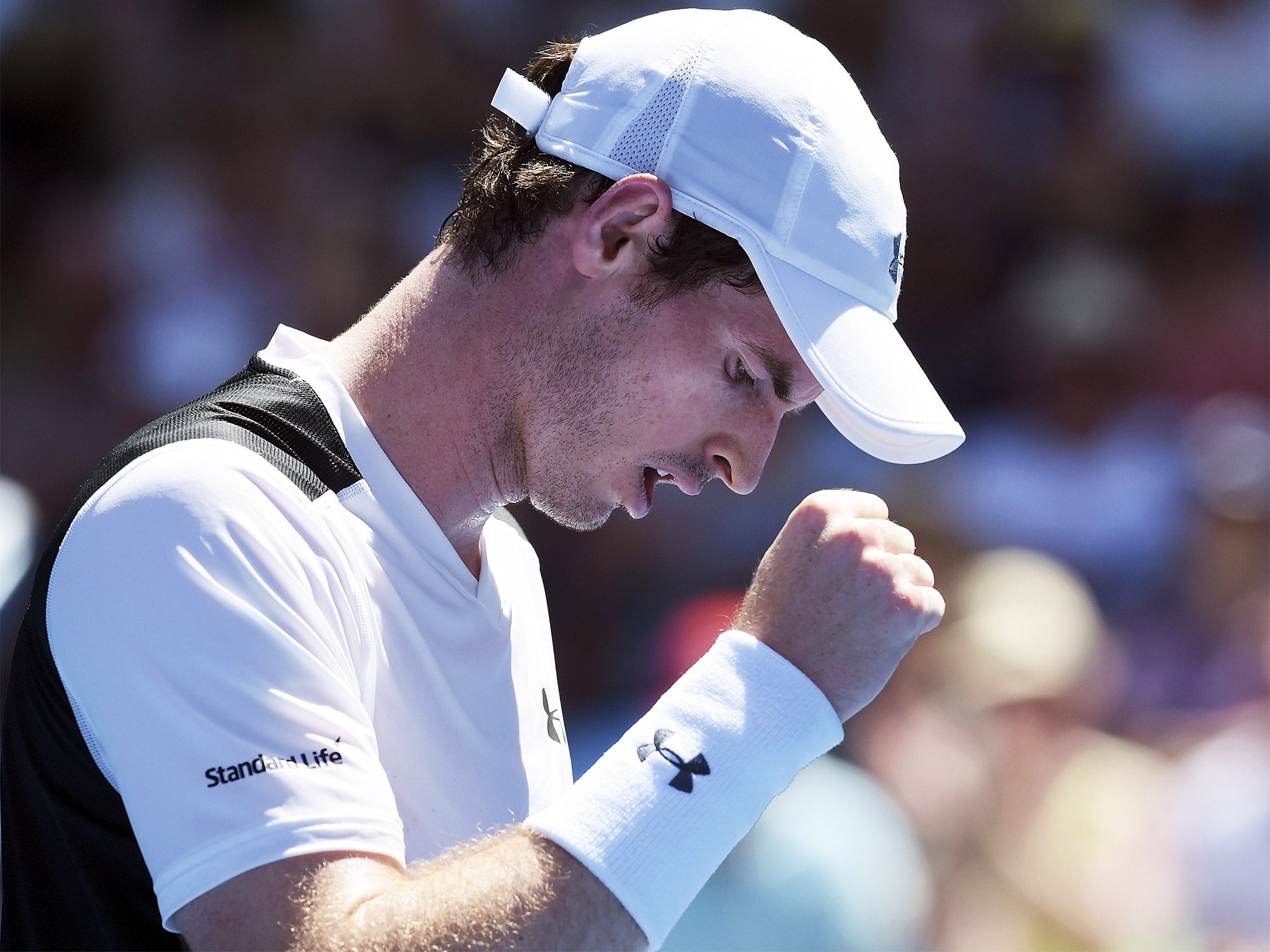Australian Open: Andy Murray says match-fixing storm can force authorities to up their game
The Scot said he had never been approached about throwing a match but believes that more should be done to educate young players about the dangers of match-fixing

Andy Murray believes the current focus on alleged match-fixing may be in the sport’s long-term interests.
Murray, speaking at the Australian Open after his 6-1, 6-2, 6-3 first-round victory over Alexander Zverev, said the investigation by BuzzFeed News and the BBC – who claim that match-fixing at the top level is “widespread” – might spur the sport’s authorities into giving more resources to the Tennis Integrity Unit, which runs the anti-corruption programme.
“Stories like this, although they’re tough for sports, they do force them to react a little bit and maybe do more about it,” Murray said. “Sports don’t necessarily want to hear about their own sport being involved in anything like this, but in some ways it can be positive if they react properly.”
Murray said he had never been approached about throwing a match but believes that more should be done to educate young players about the dangers of match-fixing. “When people come with those sums of money when you’re that age, I think sometimes people can make mistakes,” Murray said.
“I do think it’s important that from a younger age, players are better educated and are made more aware of what they should do in those situations and how a decision like that can affect your career, can affect the whole sport. Across all sports, I don’t think that that’s done particularly well.
“I think you should be learning about those things from the age of 15, 16, 17 years old and be warned about it.”
The world No 2 was also asked what he thought about betting companies sponsoring tournaments – William Hill, for example, are the “official wagering partner” of the Australian Open.
Murray said it was “hypocritical” to allow the sponsorships. “I don’t believe the players are allowed to be sponsored by betting companies but then the tournaments are,” he said. “I don’t really understand how it all works. I think it’s a bit strange.”
However, Stan Wawrinka, the world No 4, said gambling firms could help the sport to root out corruption, which can be damaging to the companies’ own business. Richard Heaselgrave, the commercial director of Tennis Australia, defended the William Hill deal. “A significant aspect of this partnership is our capacity to work side by side to uphold the integrity and framework of the sport,” he said.
On the court, Murray got his tournament off to a fine start. Zverev, who suffered a nosebleed in the early stages, is considered one of the most exciting players of his generation but the 18-year-old German – who is of Russian descent – was outplayed. Murray made early breaks of serve in all three sets and closed out victory after two hours and seven minutes.
Murray’s wife, Kim, is expecting their first child next month and the Scot admitted to being concerned every time his phone rang. “This morning, I ordered room service and I got a phone call to my room that woke me up and I completely panicked,” he said. “I answered the phone and they were like, ‘We’re just at your door with the room service’. I couldn’t hear them because there’s a door in between my bedroom and where they were knocking.”
Sam Groth, who holds the record for the world’s fastest serve at 163.4mph, will be Murray’s next opponent. The 6ft 4in Australian has never played the Scot in singles but lost to him in doubles during last September’s Davis Cup semi-final in Glasgow. “He’s a big guy with a big, big game,” Murray said. “He spends a lot of time up at the net, so he knows where to position himself and makes it tough for you.”
Murray is the only British man left in the singles after Dan Evans and Aljaz Bedene suffered comprehensive defeats. Evans lost 11 games in a row during his 6-1, 6-0, 6-4 defeat by Feliciano Lopez, while Bedene went down 6-3, 6-4, 7-6 to Steve Johnson.
Join our commenting forum
Join thought-provoking conversations, follow other Independent readers and see their replies
Comments
Bookmark popover
Removed from bookmarks